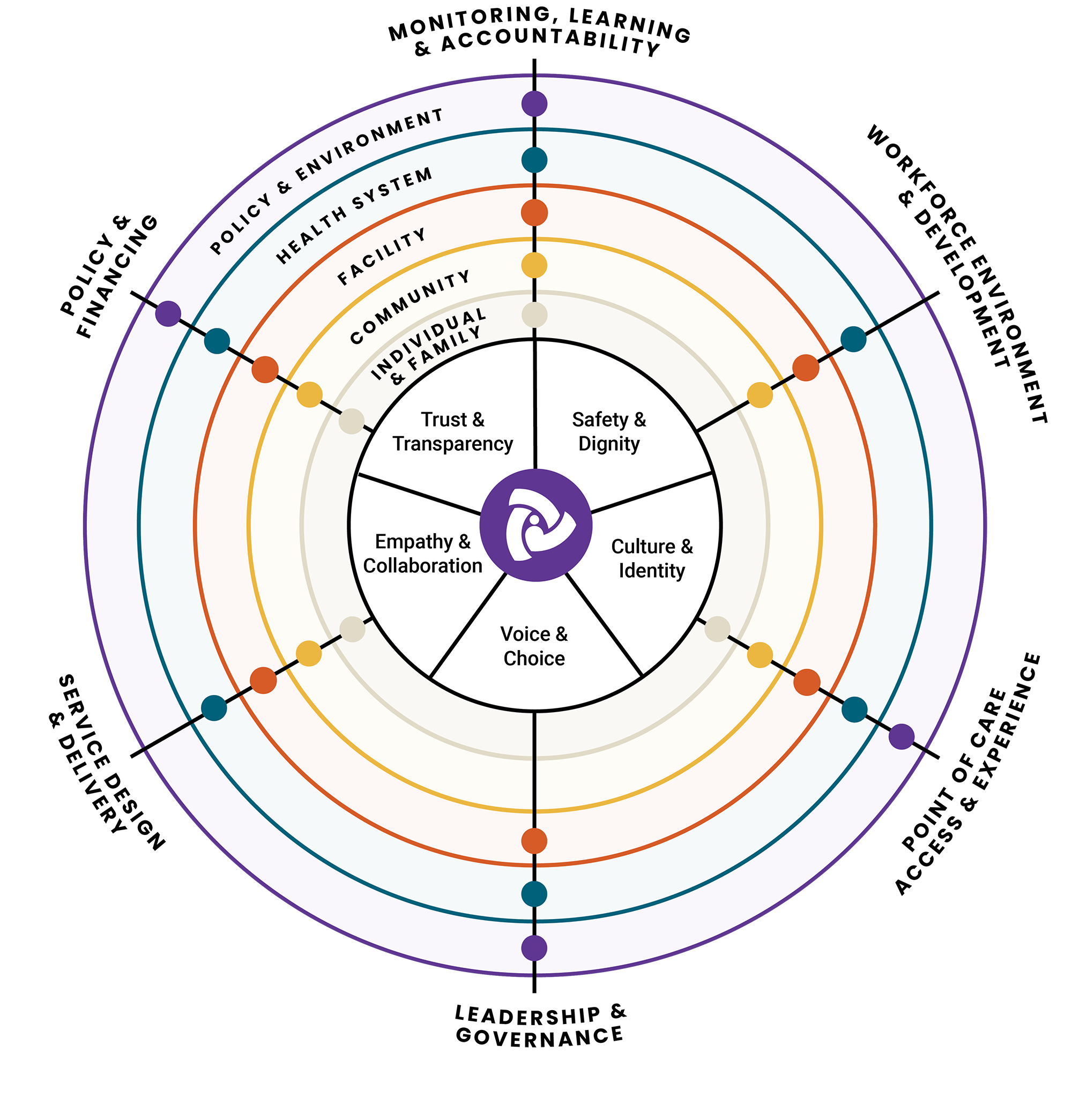Ensuring whole person health and well-being
Person-centered care acknowledges people’s essential human dignity, treats people as individuals, and finds out what is important to them regarding their treatment and care. At JSI, we put people at the center of health programs at all levels—individual, community, health facility, system, policy—because we know that each part of the ecosystem bears a responsibility to enable person-centered care. We use behavioral science to understand people’s motivations and preferences and to learn what system and service delivery changes are needed to transform people’s experiences and improve health outcomes.
Person-centered systems and services provide many benefits:
- Improved access to care
- Increased health literacy
- Higher rates of patient satisfaction
- Improved job satisfaction among the health workforce
- More efficient and cost-effective services
- Improved health outcomes

Our person-centered care framework uses a human-rights-based approach that focuses on the rights holder (person) and the obligations of duty bearers (e.g., providers, policymakers, caregivers). The five principles that surround the rights holder (at the center) establish a common vision for person-centered care.
The principles can be operationalized and assessed at each socio-ecological level (i.e., policy and environment, health system, facility, community, and individual and family) through interventions within six domains, as labeled on the outside of the framework:
- Service design and delivery
- Policy and financing
- Monitoring, learning, and accountability
- Workforce environment and development
- Point of care access and experience
- Leadership and governance